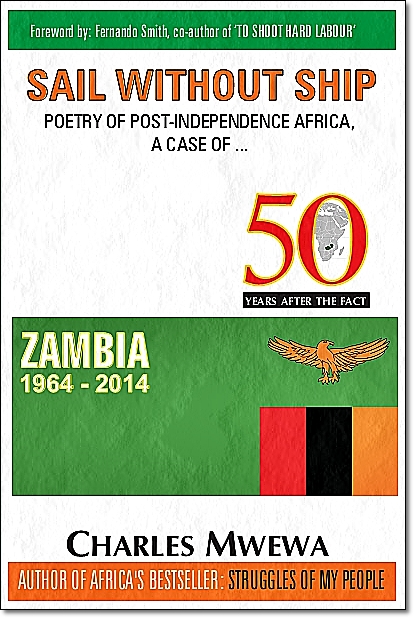Books and Authors

 |
Sail Without Ship: Poetry of Post-Independence Africa, A case of Zambia
"In these moving poems on Zambia and Africa as a whole, we are presented with a vivid, compelling and masterful account of the realities of post- independence African life.
The picture that emerges from this poetic drama is a people destined to remove themselves from the clutches of colonial domination and in simple terms come to grips with their way of life.
Where did things go wrong for Africa in the past fifty years? What ingredients could have sailed the ship of Africa and Zambia in the right direction? What needs to be done for the benefit of the majority of the impoverished Zambians and Africans now and in the future?
Written by a Zambian intellectual and Professor of Legal Studies, this poetic landscape is both timely and informative. It provides as well some insights into how Africans live up to their cultures, including religious beliefs. The dance of their women and men while bare- breasted with their body movements to the rhythm and sounds of their forefathers is vividly portrayed as are all aspects of their lives.
African culture is one of its strengths and this is beautifully celebrated here. Sit down and take a flight.
Fernando Smith, B.A.
Co-author of Caribbean Best Seller To Shoot Hard Labour."
 |
In this highly original work, Mary Njeri Kinyanjui PhD., explores the trajectory of women's movement from the margins of urbanization into the centres of business activities in Nairobi and its accompanying implications for urban planning.
While women in much of Africa have struggled to gain urban citizenship and continue to be weighed down by poor education, low income and confinement to domestic responsibilities due to patriarchic norms, a new form of urban dynamism - partly informed by the informal economy - is now enabling them to manage poverty, create jobs and link to the circuits of capital and labour. Relying on social ties, reciprocity, sharing and collaboration, women's informal 'solidarity entrepreneurialism' is taking them away from the margins of business activity and catapulting them into the centre.
Bringing together key issues of gender, economic informality and urban planning in Africa, Kinyanjui demonstrates that women have become a critical factor in the making of a postcolonial city.
